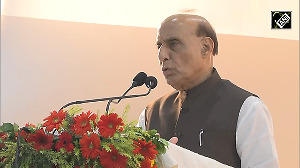Seven top male tennis players who tested positive for nandrolone were exonerated by the ATP on "clearly unsustainable grounds", the World Anti-Doping Agency said on Friday.
WADA said in a statement that more positives had come to light despite the ruling body of men's tennis (ATP) withdrawing contaminated electrolyte supplements which it believed were the source of the banned anabolic steroid.
Testing of the suspect electrolytes failed to show up traces of nandrolone-related products, WADA said.
"Now it is clearly established that the source of contamination is not the electrolyte, the legal analysis behind the seven cases ... is not sustainable," WADA said.
"The consequence and the problem arising from this situation is that there are now seven cases where exonerations were granted on what are now clearly unsustainable grounds and the exonerations may not be able to be revisited.
"The ATP has informed WADA that this (analytical) fingerprint continues to be found in samples collected from male tennis players," said WADA.
The ATP announced last July that players might have taken banned substances in supplements handed out by ATP trainers. It asked WADA to set up an investigation of the seven positive dope tests involving players between August 2002 and May 2003.
In its report WADA was scornful of the ATP's inconsistent disciplinary process covering the seven cases.
The allegation that an ATP-supplied electrolyte might be responsible for the positive test was made by just one of the players, the fifth charged, WADA said.
An ATP investigation "found through questioning ... that most of the 43 players with positive or elevated tests claimed (in retrospect) that they had used the electrolyte replacement product provided by trainers," WADA said.
WADA said the independent tribunals which exonerated the players made an "extraordinary series of findings" founded on two principles - shifting the onus of proof to the ATP to show it was not the source of the positive tests, and precluding the ATP from sanctioning players based on positive tests because it might have been responsible for those positives.
The name of only one of the seven players, Bohdan Ulihrach of the Czech Republic, was made public. He was banned for two years by the ATP but exonerated at a second hearing.
Under WADA's anti-doping code, which the ATP has not fully signed up to, athletes are responsible for any substance in their bodies under the "strict liability" principle.
Briton Greg Rusedski was cleared of doping offences in March after an ATP-appointed tribunal found the ATP could have been responsible for his positive nandrolone test.
Rusedski admitted in January he had tested positive in a test taken in July 2003. The WADA review did not cover his case.







